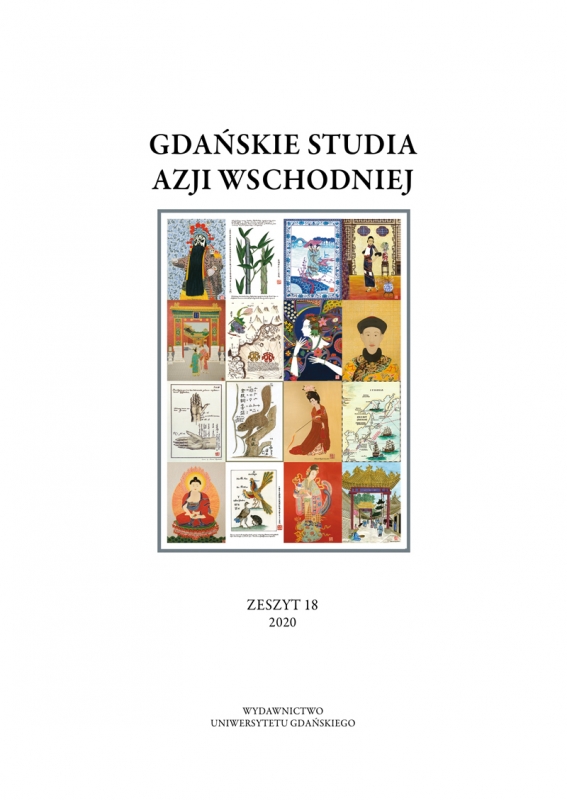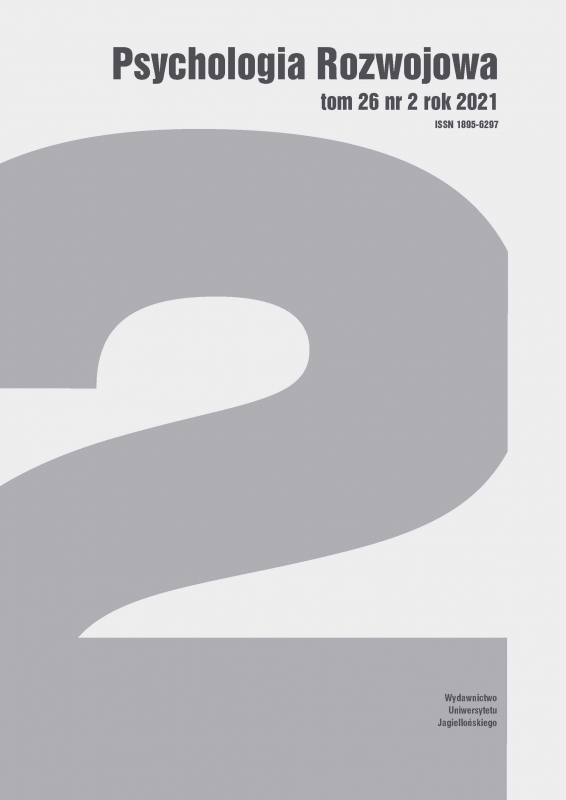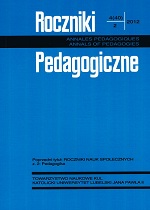

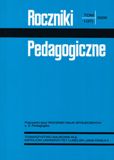
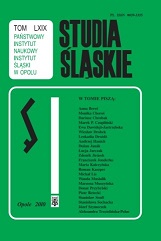
Keywords: Silesian Church; lutheran Evangelical Church of Augsburg Confession;
The Silesian evangelical Church of Augsburg Confession in the Czech Republic is the follower of the pre-War Augsburg Church. At the beginning of the 1990s its congregation amounted to 33 thousand followers. Since the time of its establishment in 1923 it was a Polish institution which – in the interwar period – defended its autonomy against attacks of Czech evangelists. After the war it managed to preserve its independence due to its farfetched loyalty towards the communist state. It was this background, as well as the attitude to the character of functioning of the communities that gave rise to conflicts within the Silesian Church at the beginning of the 1990s. They resulted in a split and establishing Lutheran evangelical Church of Augsburg Confession, with the congregation of about 10 thousand followers. At present the number amounts to 5 thousand members.
More...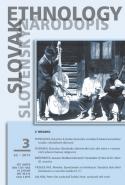
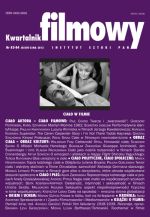
Keywords: film studies
The article gives an account of the First Congress of Film and Media Scholars that was held in Kamień Śląski in the beginning of June 2013. The congress was organised by the department of Film and Media Studies, of the Institute of Culture and Interdisciplinary Studies, of the University of Silesia, in cooperation with the National Centre for Culture, The “Initiative” Association (Stowarzyszenie Inicjatywa), and the film institution “Silesia Film” from Katowice. It was the first such event in Poland that allowed for an in-depth discussion about the state of film and media studies today. The variety of presentations within six panel sessions (History of film and cinema, Methodologies and theories of audiovisual media today, Moving pictures in anthropological perspective, New media – new research challenges, and varia) confirms the width of issues with which contemporary film and media studies scholars must deal with.
More...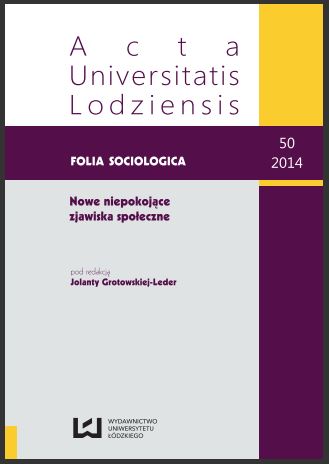
Keywords: book review; education
More...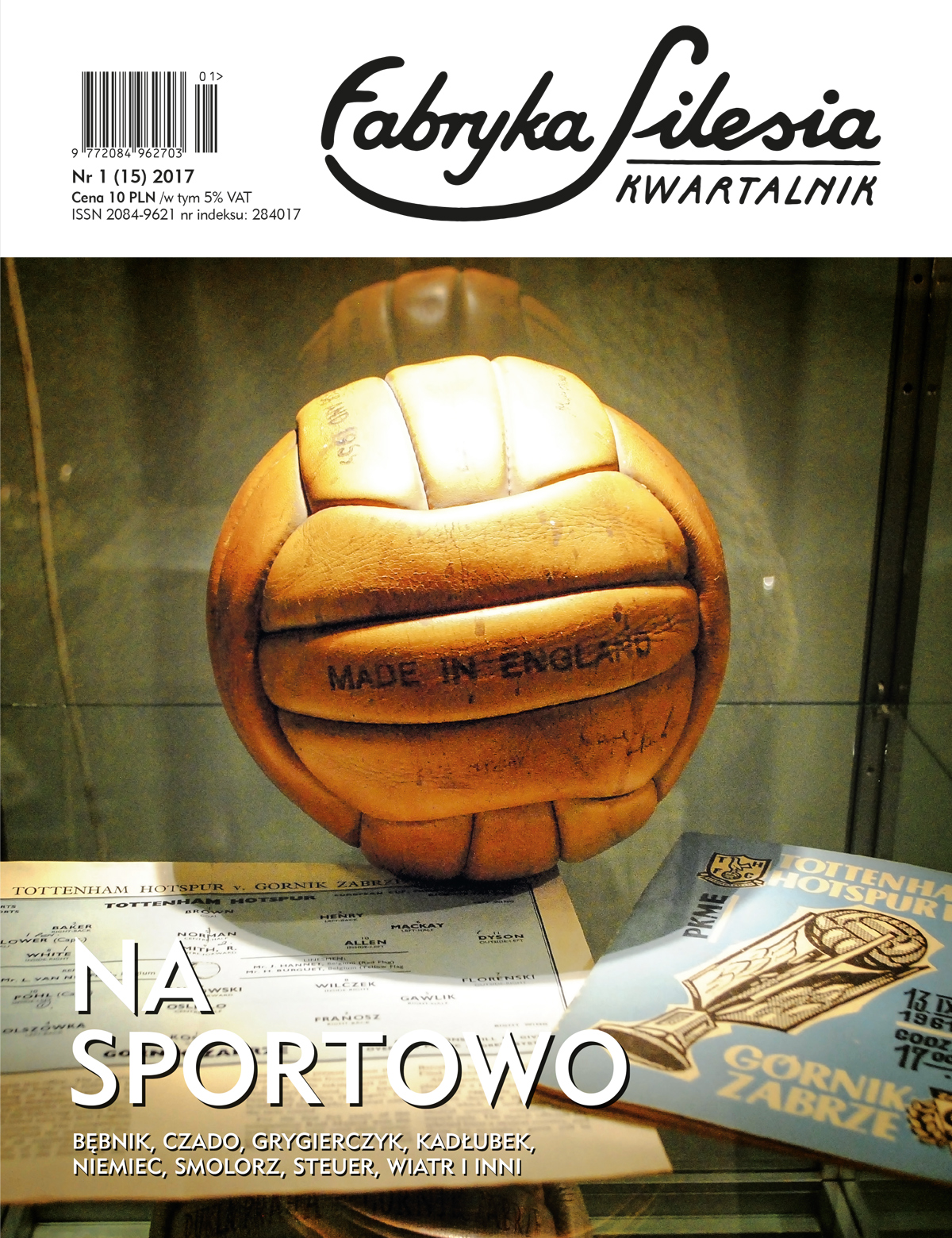
Keywords: philosophy;history;sport;
Sport is one of the ways of living a good life in the philosophical sense. Sport is a dream of excellence. Sport evokes the desire for perfection. This spirit of perfection wants to jump over the history. He is going to win the race with everything around.
More...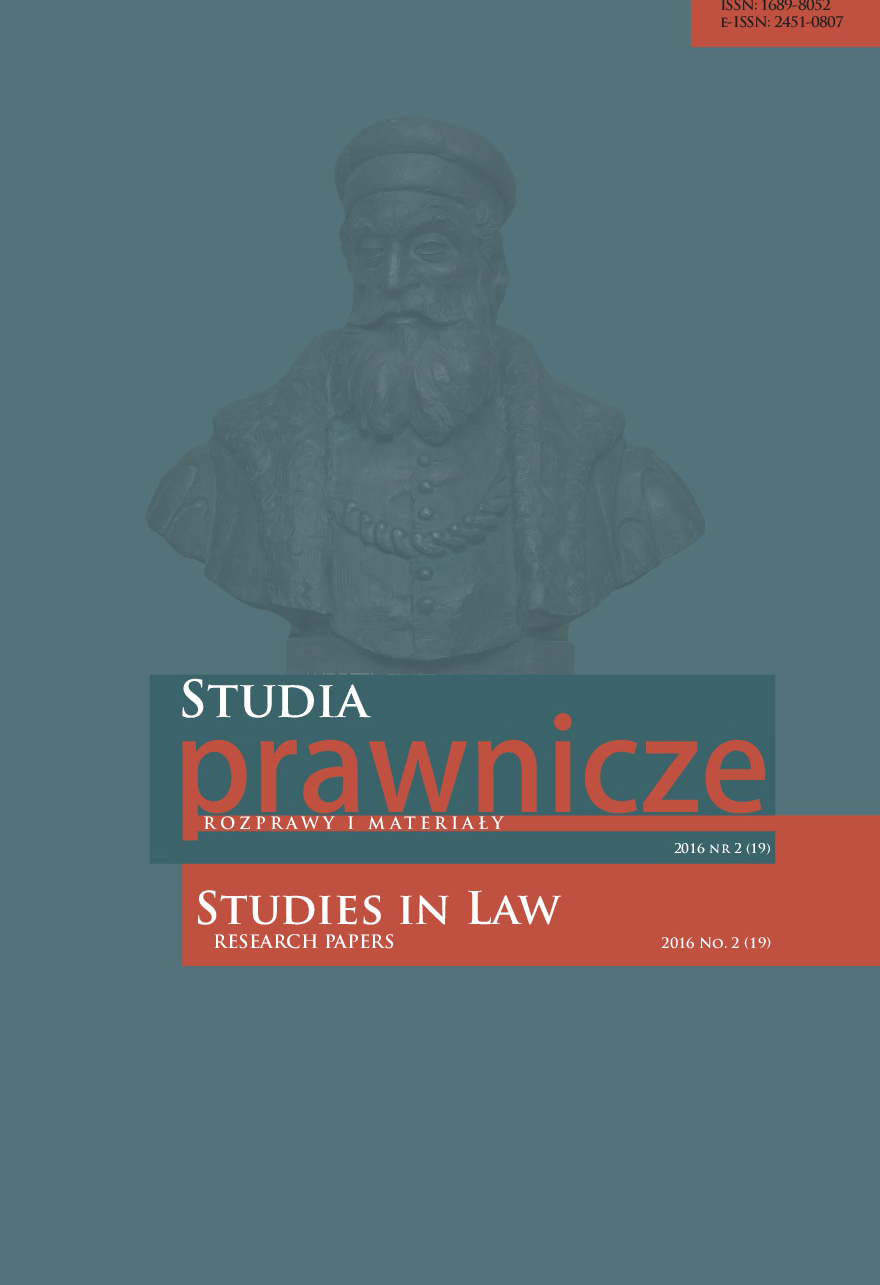
For several years, the Polish legal community has been increasing interest in new methods and tools that help law enforcement agencies and the judiciary in developing - broadly and not completely strictly - the evidence gathered in a given criminal case. There is even talk of the need to look differently from the methodological and logical plane to the cognitive processes taking place in the minds of process decision makers. This perspective is also expanded by the interest in artificial intelligence for detection and evidence purposes. It is this problem which focuses on the so-called The investigation was devoted to the two-day National Scientific Conference organized by the Criminalistics Laboratory of the Faculty of Law and Administration at the University of Opole. It should be added that this was one of the first important debates in Poland on a modern approach to the analysis of evidence and related issues.
More...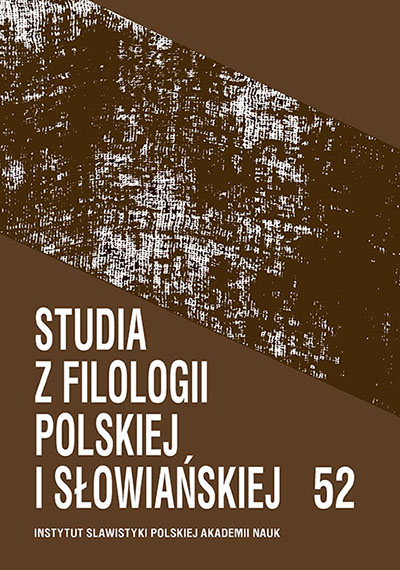
Keywords: review; German language; Polish language; German dialectology; language contact; word formation;
The article reviews a volume in which Professor Janusz Siatkowski presents lexical and word-formation borrowings from Slavic languages to general German and to German dialects. The book considers the entire area of Slavic-German contact (Livonia, Eastern Prussia, Western Prussia, Pomerania, Silesia, Czechia, Moravia and Austria) as well as Lusatia and territories more distant from the centuries-old language border, namely Saxony, Thuringia, Brandenburg and Mecklenburg. Special attention is paid by the author to borrowings in the works by the Upper-Silesian Germanlanguage writer Horst Bienek. The reviewed work distinguishes a number of language contact constellations: 1) borrowed lexical roots with borrowed derivational suffixes; with direct counterparts in Slavic languages; 2) borrowed lexical roots with borrowed derivational suffixes; without direct source words in Slavic languages; 3) Slavic derivational suffixes with roots of German etymology; with counterparts in Slavic languages; 4) Slavic derivational suffixes with roots of German etymology; without source words in Slavic languages. Janusz Siatkowski argues that, especially in bilingual territories, language contact was so strong that derivational suffixes could be productive in German dialects irrespective of lexical borrowings. The rich lexicological material is discussed on an excellent scholarly level, in accordance with all criteria of philology and current state of research. The book is a true compendium of Slavic borrowings to German dialects.
More...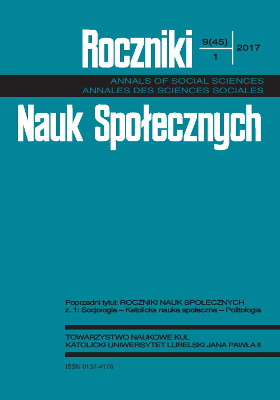
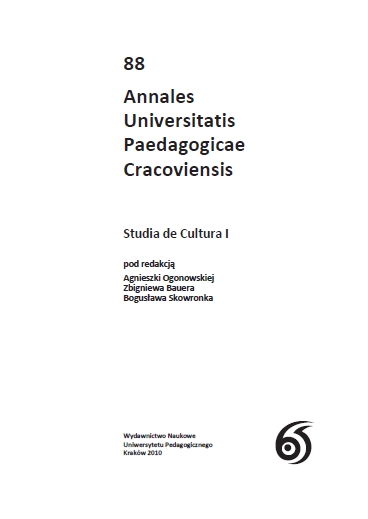
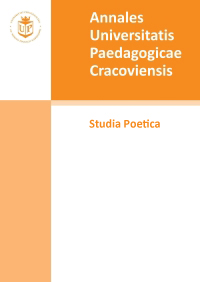
Keywords: Silesia;city;town;paideia (παιδεία);New Latin literature;literary culture;Wroclaw-Breslau;Laurentius Corvinus;Wojciech Kilar
The theme of the city has always played an important role in Silesia, one of the most urbanized areas in Central Europe. It occupied a significant position, if not the central one, in the Silesian New Latin literature. The city was not only a background, a board for the literary game, but also the main theme, the addressee of praise songs. Anne, the wife of the famous humanist, Laurentius Corvinus, is inextricably bound with one of the first poems that extoll the city. Some of the most eulogized cities are Wroclaw (Vratislavia, Bresla) and Złotoryja (Goldberga). Silesian cities were glorified both in poetry and prose until the end of the 18th century which is the end of the Latin literary culture in Silesia. Vernacular literature that followed depicted the city in a pejorative way, as a paved desert full of horror and fear, referring to the commonplace disapproving perception of the city in the biblical tradition.
More...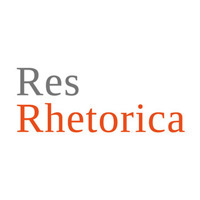
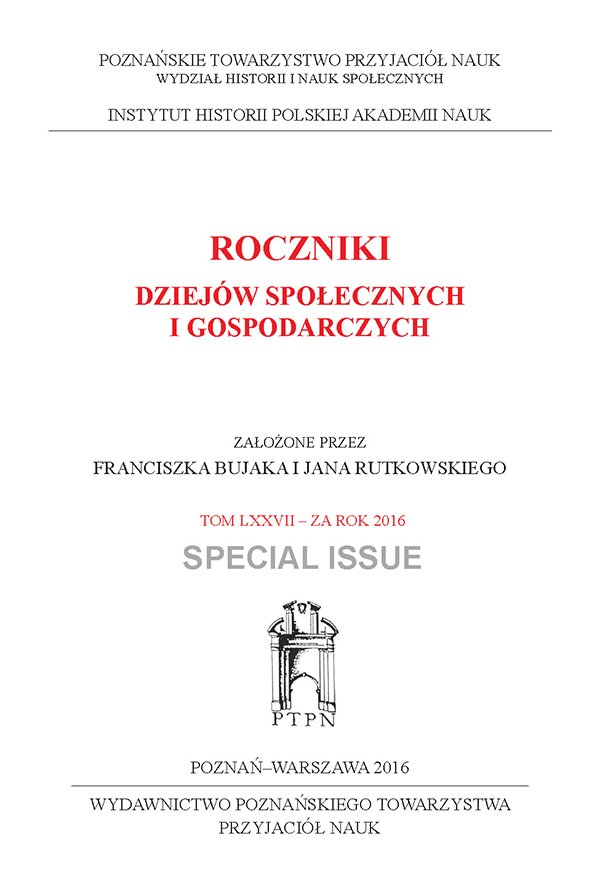
Keywords: Urbanism; architecture; private towns; Schaffgotsch family; Gryfów Śląski, Mirsk
This work examines the influence of the Schaffgotsch family on shaping the spacial layout and architectural design of two private towns: Gryfów Śląski and Mirsk. It contains the analysis of the urban layout and infrastructure of the towns before and after they became a part of the estate of the family in question, as well as an attempt to evaluate the relations between the representatives of urban communes and the town owners. As a result, the work presents a network of formal and informal links between these two parties, which had a positive impact on the economic development of the towns. It also proves that the Schaffgotsch family had little interest in interfering with the spacial layout and infrastructure of the analysed centres.
More...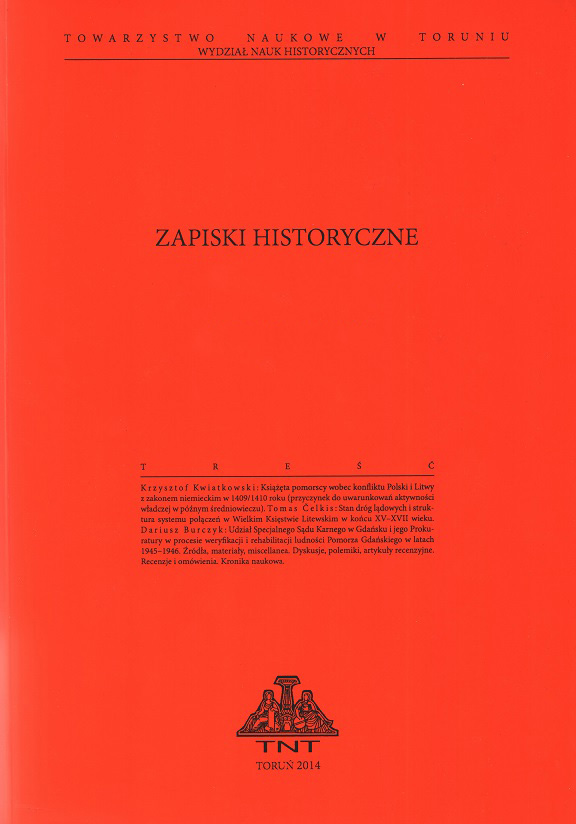
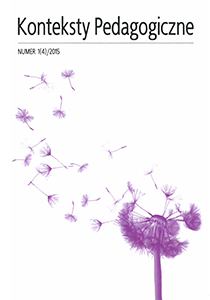
![Lekcje myślenia (obywatelskiego) : edukacja polonistyczna wobec współczesnego świata / Krzysztof Koc. – Poznań : Wydawnictwo Naukowe Uniwersytetu im. Adama Mickiewicza, 2018. – 279, [1] s. ; 24 cm. – (Filologia Polska / Uniwersytet im. Adama Mickiewi](/api/image/getissuecoverimage?id=picture_2019_59402.jpg)
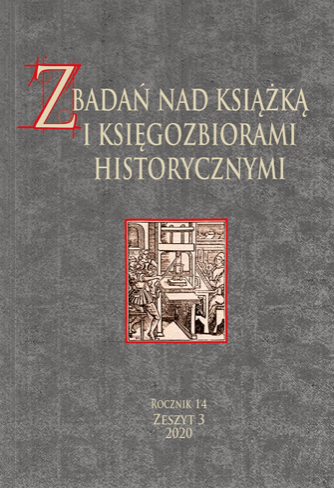
Keywords: Freiherr Johann Georg Czigan von Slupsk auf Freistadt und Dobroslawitz; Upper Silesia; Duchy of Teschen; nobility; Grand Tour; nobilitas literaria; aristocratic libraries; supralibros
Freiherr Johann Georg Czigan von Slupsk auf Freistadt und Dobroslawitz, who died in 1640, was the patron and friend of the Silesian poets Daniel Czepko and Wenzel Scherffer von Scherfferstein. With their poetic messages, they contributed to the dissemination of the image of the Freiherr von Slupsk as an erudite and book lover. This article attempts to verify the above opinion and identify the sources of the intellectual formation of Johann Georg Czigan and the genesis of his literary and bibliophile interests. It describes the environmental connections of Johann Georg Czigan and the ties that connected him with the world of nobilitas literaria. It presents books that were his property and have survived to this day, adorned with the baron’s supralibros, one of the two currently known aristocratic proprietary marks of this kind from the Duchy of Cieszyn.
More...